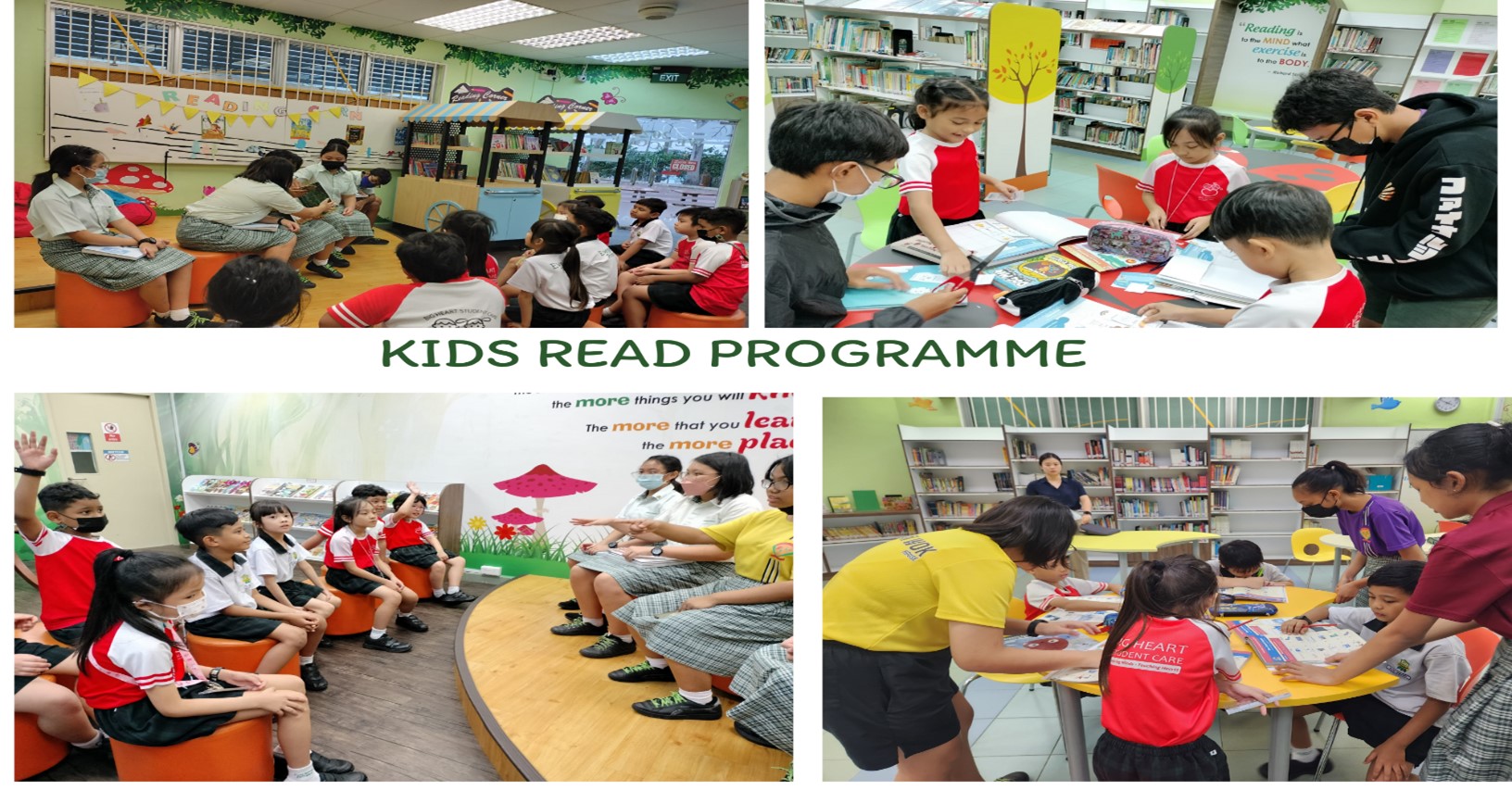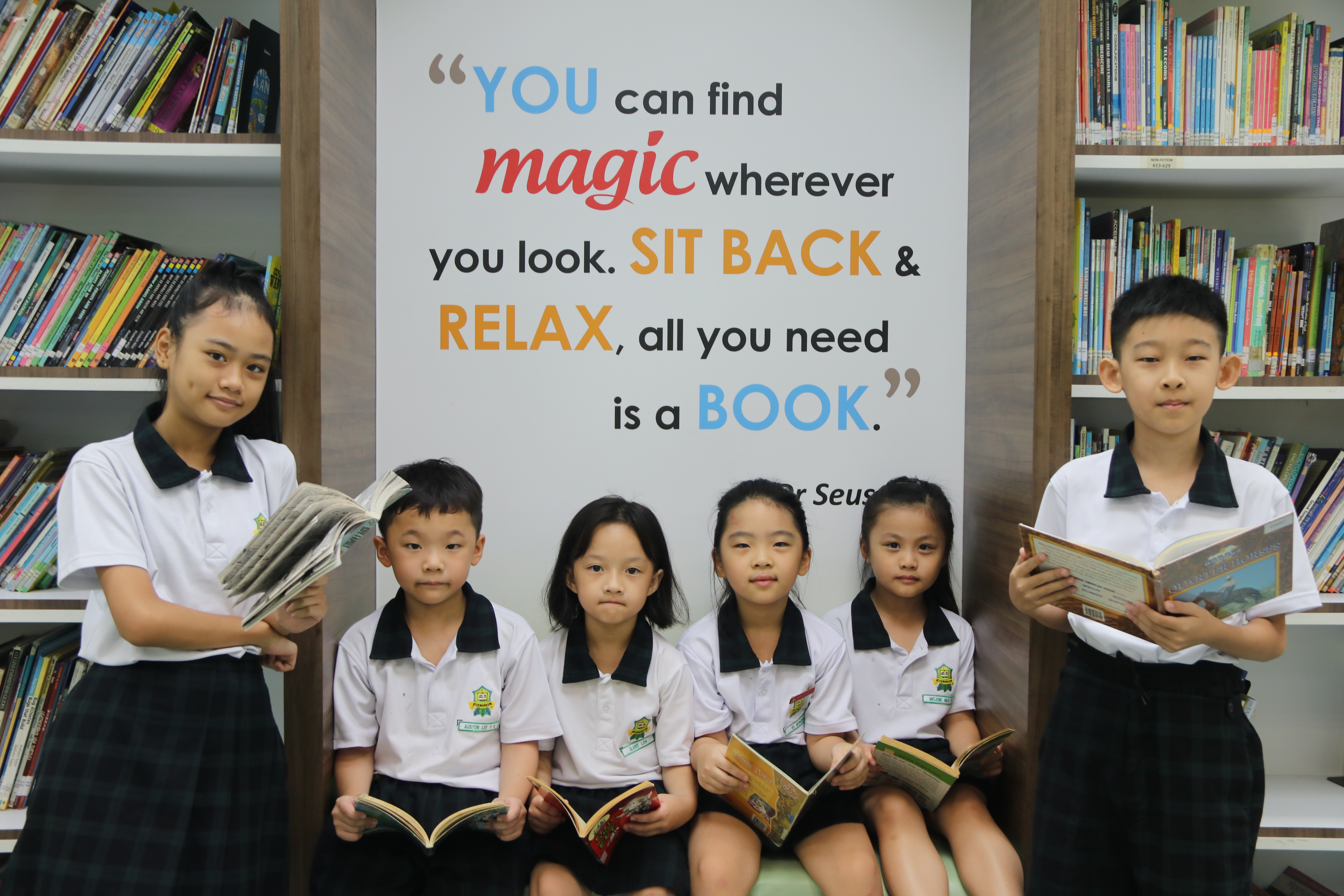English Language
Our Vision:
Every student a confident and competent user of the English Language.
Approach:
The English Language Department has adopted a two-pronged approach of building a strong foundation and providing rich language for all.
We believe that a strong foundation in language is acquired through reading and frequent use. As such, we have an array of programmes to promote reading. Opportunities are provided for students to read good books, listen to stories and voice their opinions.
Language is also a tool for communication. The importance of speaking skills, hence, is enormous for the learners of any language. It is important to speak correctly and effectively in-order to communicate well with one another. We have provided various platforms to allow our students to use language confidently through public performances, language games and activities.
We also believe in giving opportunities to our students to apply the 21st century skills of communication, critical and creative thinking and collaboration.
As such, we have planned an array of programmes and activities that have been infused into the curriculum to help us achieve those aims.
Programmes & Learning Experiences
-
Extensive Reading Programme & Library Activities
- P1 to P4 Language Arts Module
- T.G.I.F
- Design Thinking
- Support Programmes: RRP, SDR LSP & KidsRead
- Stretch Programmes: Writing & Speaking Programmes
- Learning Journeys
A) Extensive Reading Programme & Library Activities
Aims:
-
Develop the joy of reading
-
Develop reading readiness, positive attitudes & behaviours in students
-
Provide opportunities for students to appreciate multiple perspectives and respond to different text types
Through the Extensive Reading Programme & Library Activities, students learn how to appreciate multiple perspectives, appreciate the contexts in which the texts are written, respond to the texts by giving their personal responses either verbally or in written form. There is also a heavy emphasis on developing students to be empathetic towards others through character studies.
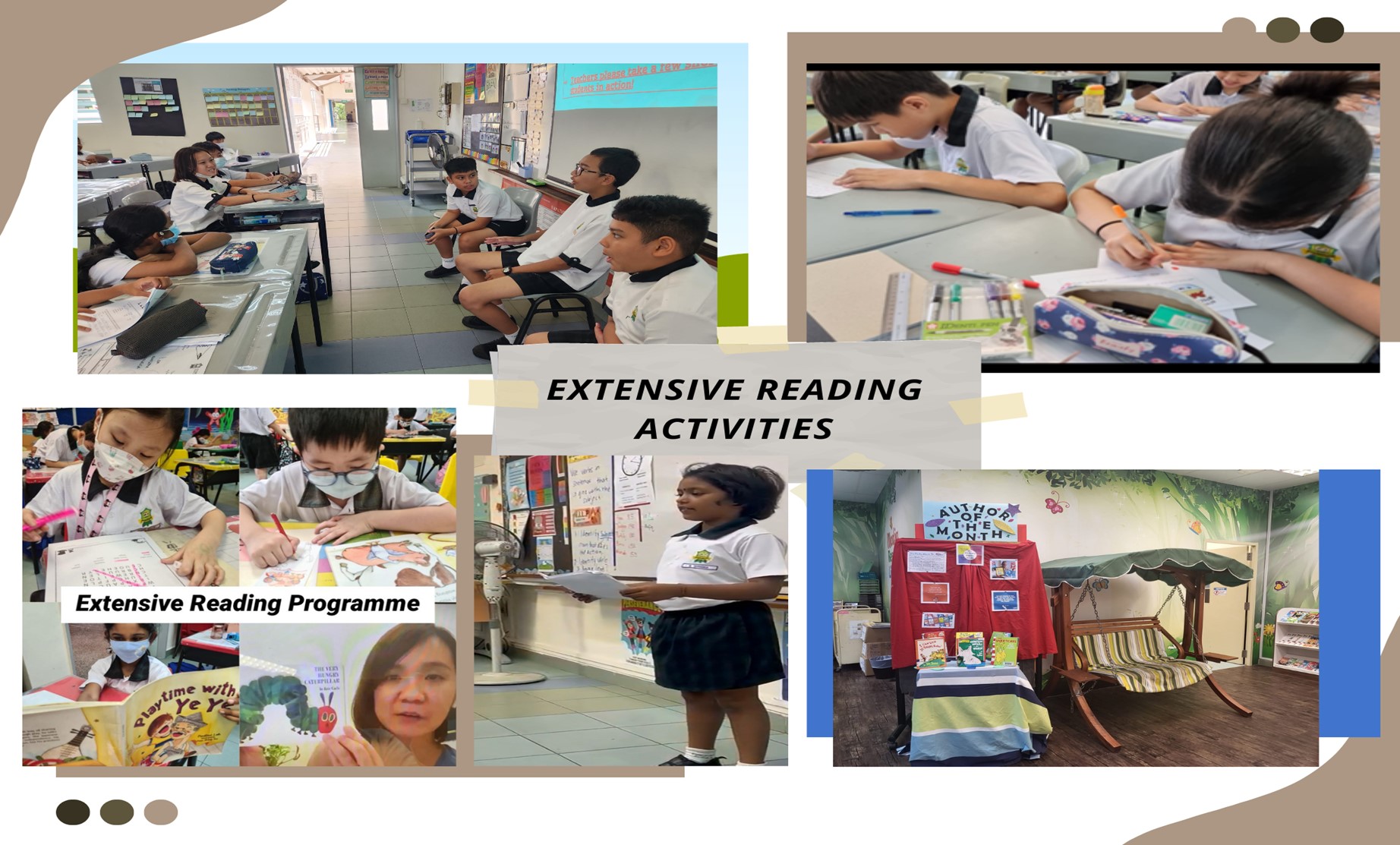
B) P1 to P4 Language Arts Modules
To develop students’ confidence and competency in the spoken language, we have a 4-year matrix where students undergo an English Language Arts Module each year.
Primary 1: Choral Reading & Poetry Recitation, Primary 2: Readers’ Theatre,
Primary 3: Drama,
Primary 4: Musical
Through these modules, the students are exposed to a variety of strategies that allow them to develop their skills in communicating and performing. The Language Arts Modules provide the opportunities for students to develop their confidence and practice their oracy skills. At the end of each module, each class in the level will perform a short adaptation of a drama or a musical. This serves as a platform for the students to display their skills and talents.
In Semester 1 2023, the Primary 2, 3 and 4 students put up a level performance for their parents. It was heartening to see the overwhelming support from our parents. A definite thumbs up to our students who persevered and put up a great performance, and we look forward to the Primary 1 students’ performance in Term 3!
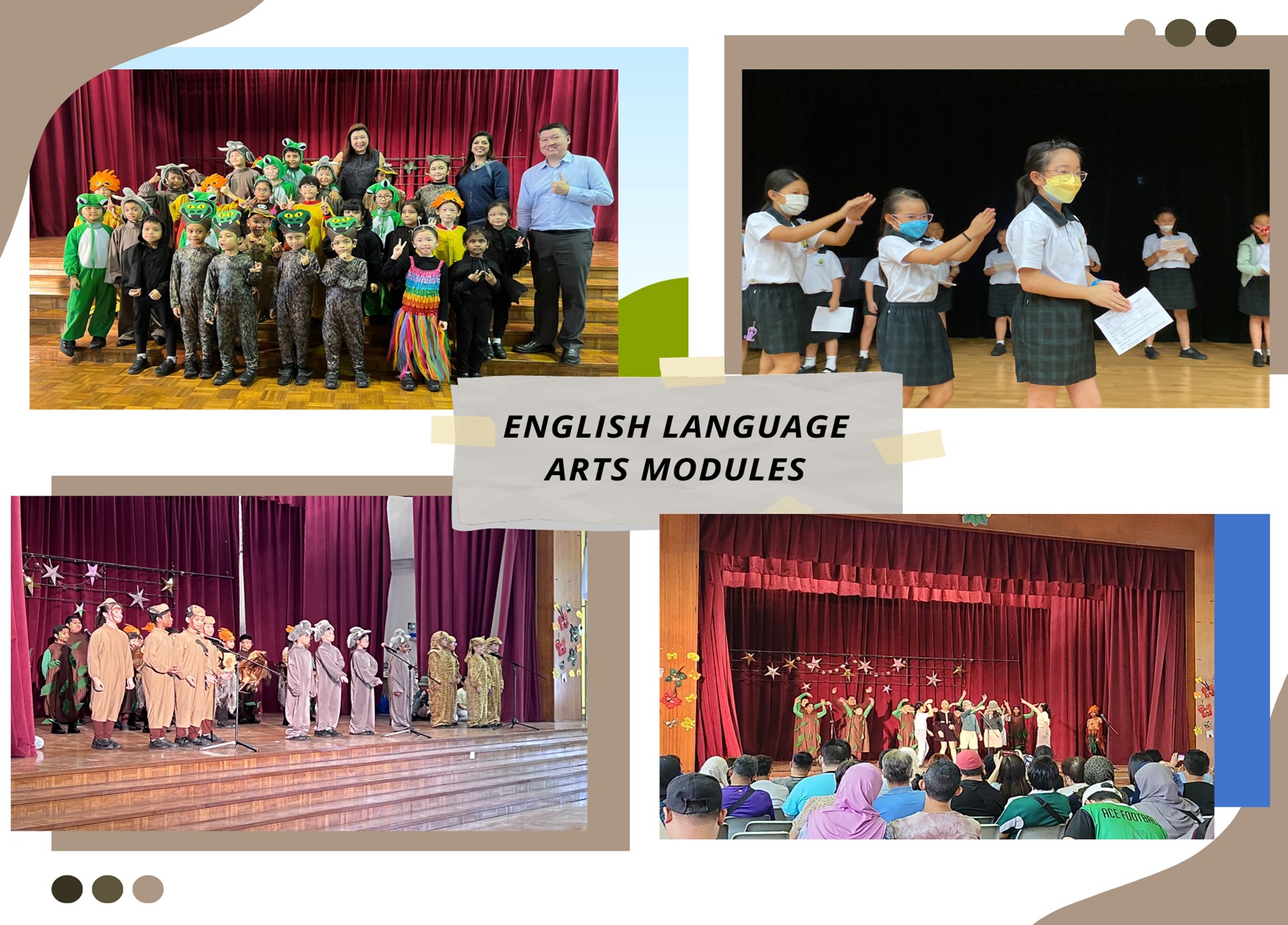
C) T.G.I.F - English
This year, the English Language Department collaborated with the Mother Tongue Department in planning the T.G.I.F. activities for the students on the last Friday of Term 2. The 2 language departments set up interesting and engaging booths to promote the love for the languages. Activities planned for the students served as a gateway for them to learn more about the various languages in a fun and meaningful way. In conjunction with T.G.I.F, the English Language Department also organized the Dress Up as Your Favourite Character Day. The students showed their creativity and enthusiasm by dressing up as character from a story.
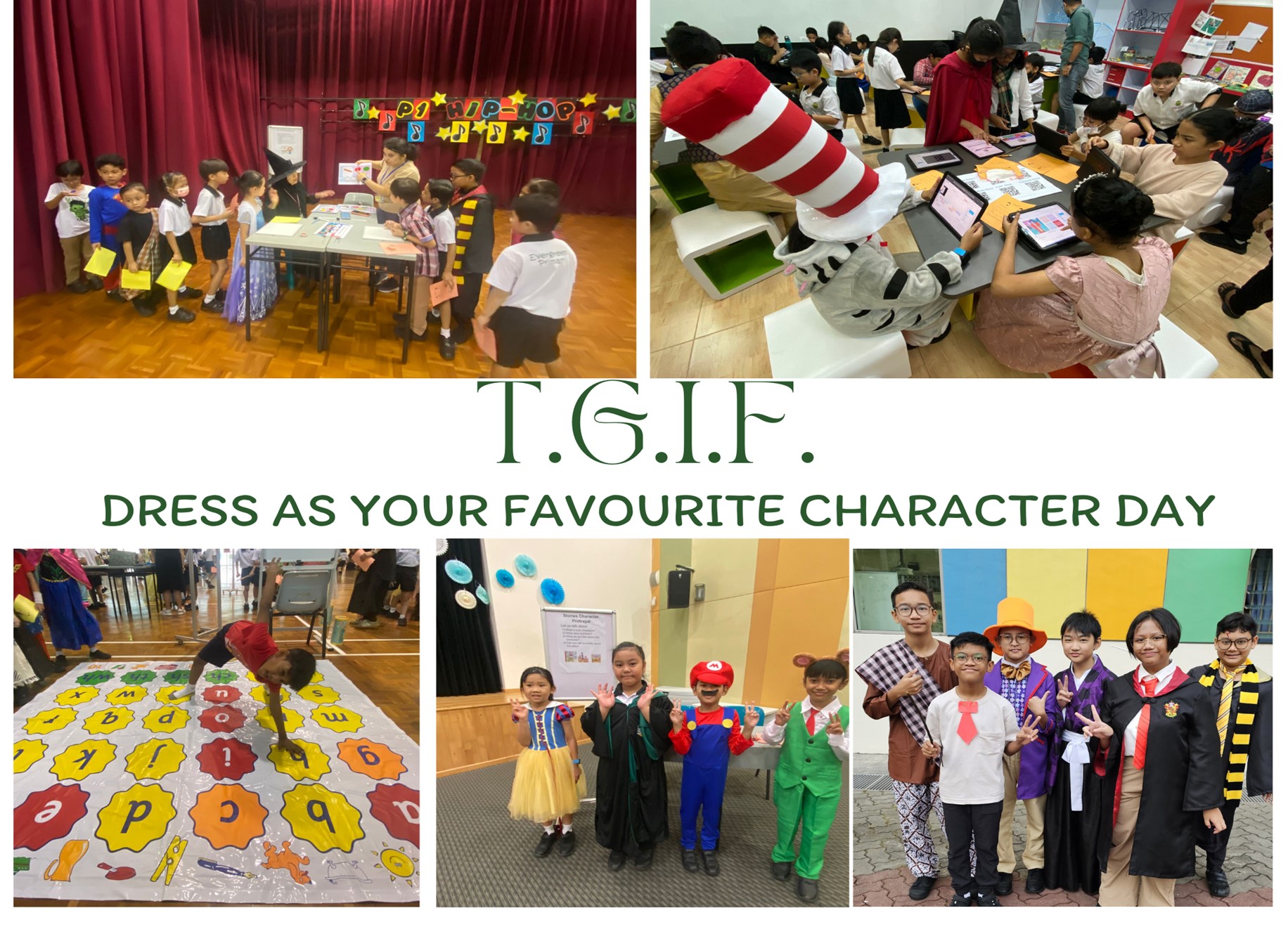
D) Design Thinking
To further infuse critical and critical thinking skills in the learning of English Language, we have introduced Design Thinking to our Primary 1 to Primary 3 students. Design Thinking is a problem-solving process in which students learn how to communicate effectively & with empathy, work collaboratively to find solutions for a problem, explore the needs and perspectives of the user, ask critical questions and be active problem solvers. By using stories or texts, students will analyse the problems faced by the characters and work collaboratively to design a solution to those problems.
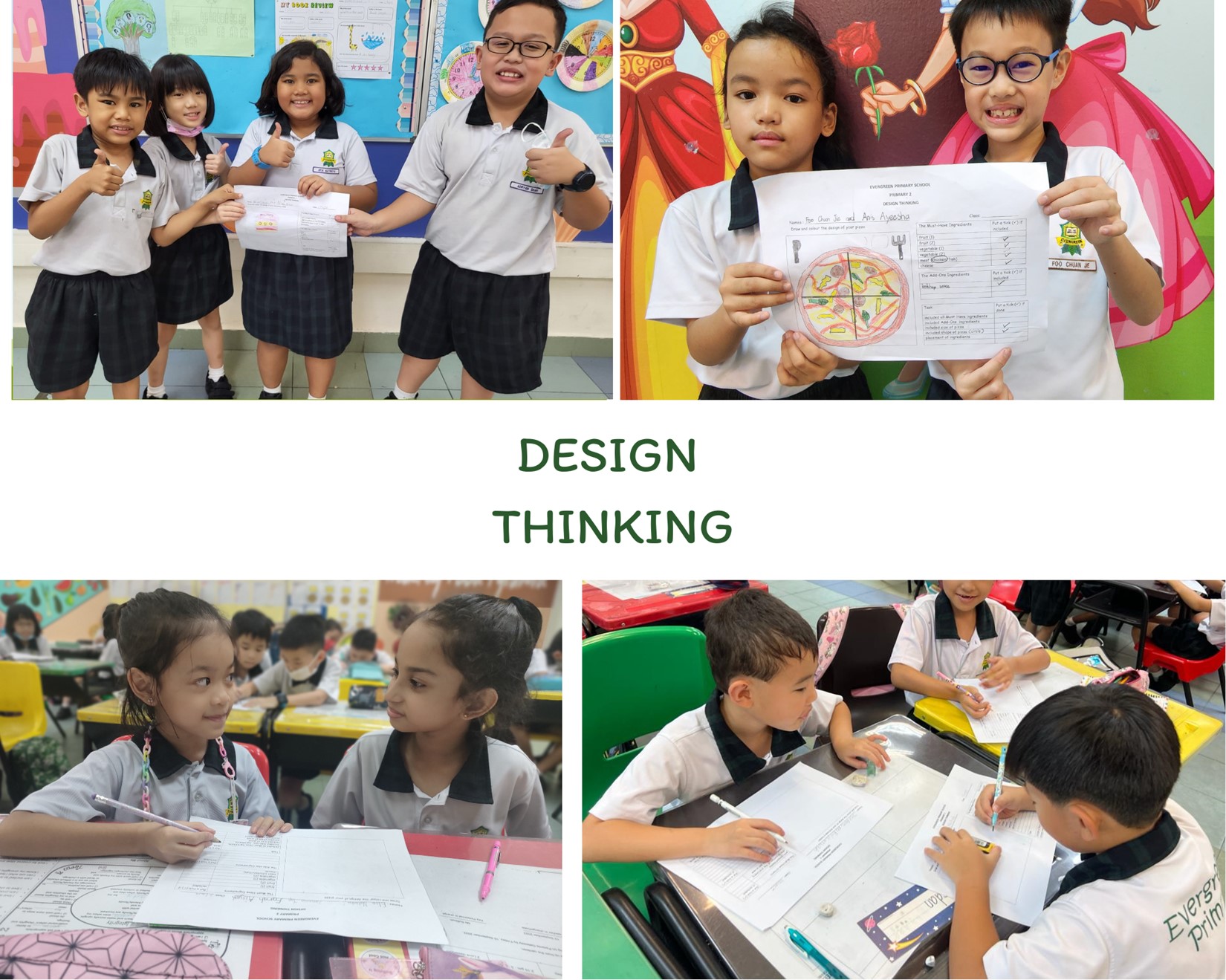
Partnership
We collaborate with Evergreen Secondary School students for the KidsRead programme. It is a reading programme that aims to promote the love of reading and cultivate good reading habits among the students. Students from Evergreen Secondary School volunteer their time to be Reading Buddies to the Primary 2 students.
